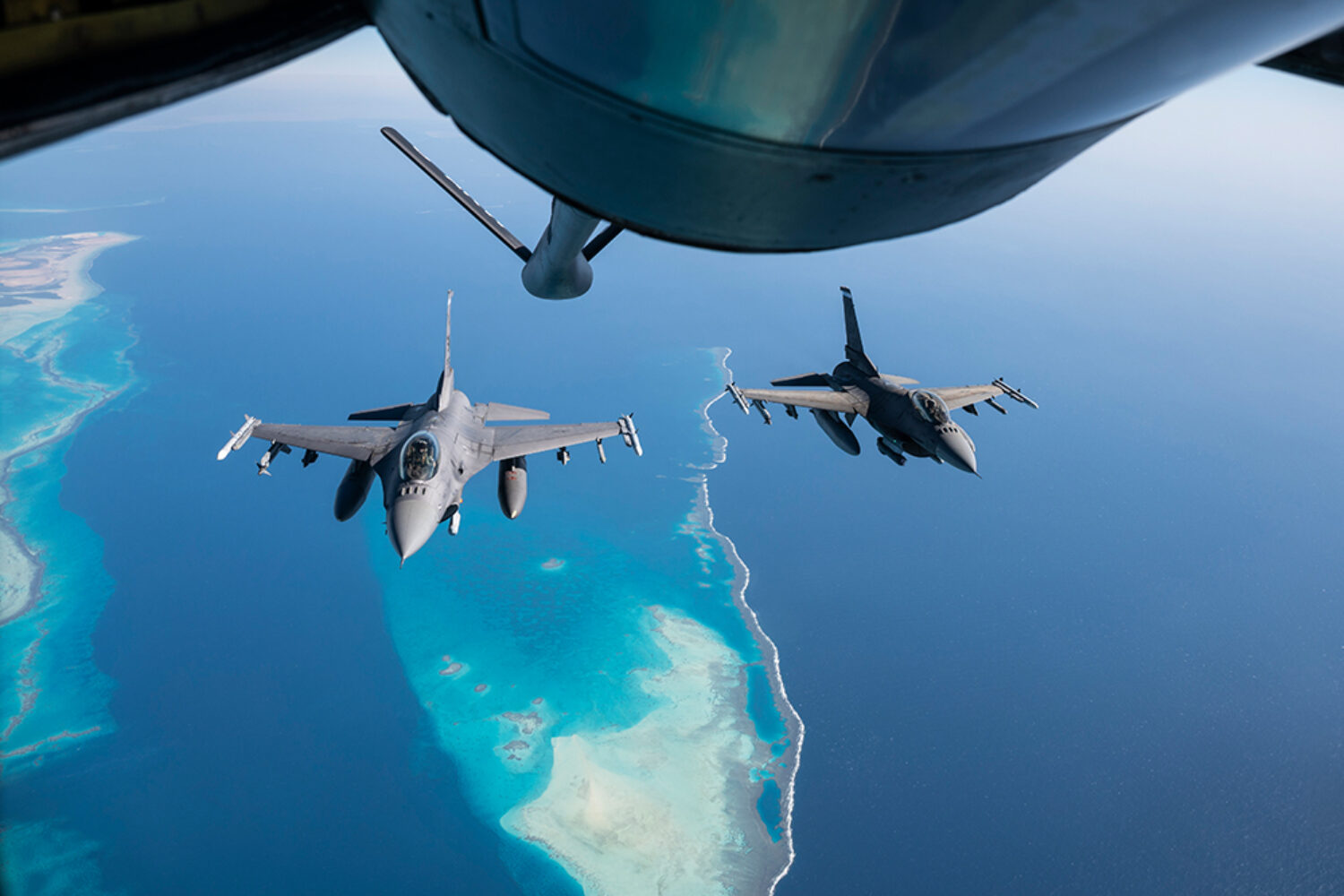The patience of the USA and its allies with the Houthis has run out. The militia’s recent attacks on shipping in the Red Sea are now being followed by air strikes in Yemen.
Just a few days ago, the USA and 13 allied governments warned the Houthis in Yemen of consequences if they did not stop their attacks on commercial shipping in the Red Sea. However, the Iran-backed rebel group ignored this “final warning” and this week even dared to launch its largest missile and drone attack on the shipping lane to date. Now came the response. [ds_preview]
The armed forces of the United States and the United Kingdom, with the support of Australia, Bahrain, Canada and the Netherlands, have carried out attacks on military targets in Houthi-controlled areas in Yemen.
According to the British Ministry of Defense, one attack was carried out on a base in Bani in northwest Yemen, which is used for launching reconnaissance and attack drones. Another target was the airfield in Abbs, from where both cruise missiles and drones have been launched in recent weeks.
“Coalition action is a clear message to the Houthis”
“This action is intended to disrupt and impair the Huthis’ ability to endanger seafarers and threaten global trade on one of the world’s most important waterways. The Coalition’s action today sends a clear message to the Houthis that they will bear further costs if they do not cease their illegal attacks,” said U.S. Secretary of Defense Lloyd J. Austin.
The attacks by the US Air Force and the British Royal Air Force with Royal Air Force “with non-operational support” from the Netherlands, Australia, Canada and Bahrain targeted sites associated with the Huthis’ unmanned aerial vehicles, ballistic and cruise missiles, and coastal radar and aerial surveillance assets. “The United States upholds its right to self-defense, and we will take follow-on action to protect U.S. forces if necessary,” Austin continued.
Since November 19, the Houthis have carried out more than two dozen attacks on ships, targeting merchant vessels as well as US warships. Many shipping companies are therefore avoiding the Red Sea and therefore also sailing through the Suez Canal. The alternative route between Asia and Europe around the Cape of Good Hope leads to supply chain problems and rising transportation costs.
The USA sees the attacks as an international challenge that requires a joint approach and has therefore launched the Prosperity Guardian military initiative. However, after initially pledging to cooperate, some countries have now withdrawn or, like France, Italy and India, are acting on their own or limiting their involvement to sending individual officers. Although Germany had joined in the warning to the Houthis, it has so far adopted a wait-and-see attitude. According to reports, the EU is being relied upon and an expansion of the Atalanta operation or a new mission is being discussed. The news agency Reuters also recently reported that German industry is already calling for the navy to be involved in operations in the Red Sea.













